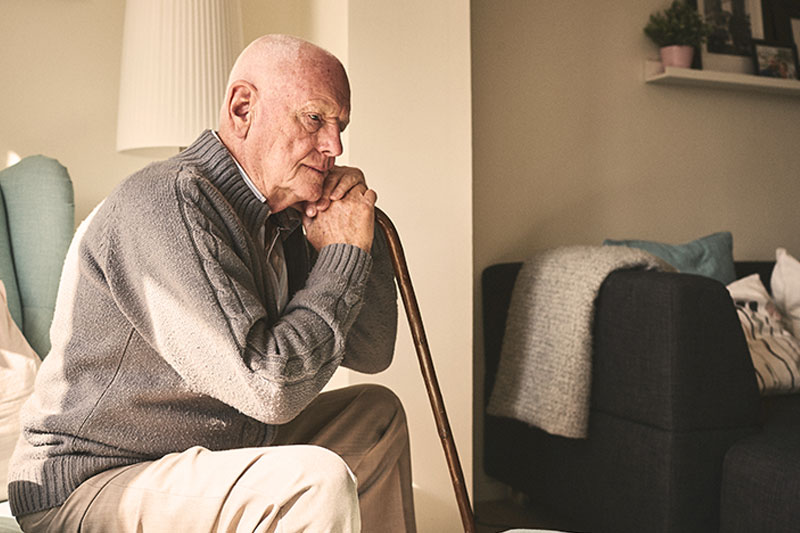
When it comes to seniors and depression, knowing the risk factors can help with prevention and treatment.
After spending time with family and friends and revisiting beloved memories and traditions over the holiday season, it is typical for a sense of nostalgia and sorrow to develop for older adults. Even though some amount of short-term post-holiday unhappiness can be anticipated, it’s crucial to be aware that it can develop into depression. Depression is a serious mental health condition that is common for seniors, but isn’t a natural part of getting older.
How can you tell if a senior you love has become depressed – and, what can you do to provide support?
First, it is important to understand the risk factors for seniors and depression, including:
- Loneliness and isolation
- A sedentary lifestyle
- Stress
- Chronic health issues
- Sleeping problems
- Addictions
- A family history of depression
If a senior you love fits into some of these categories, or if you are simply worried that the senior could be on the brink of depression, watch out for these red flags:
- Prolonged feelings of low self-esteem, anxiety, guilt, hopelessness, emptiness, or sadness
- Fidgeting, irritability, or restlessness
- A lack of interest in socializing or engaging in previously-loved activities
- Tiredness and listlessness
- Changes to eating or sleeping patterns
- Difficulty with concentration, memory, or decision-making
- Thoughts or discussions about the subjects of death or suicide
- In the event that you suspect depression in a senior you love, take action right away. Depression must not be shrugged off as something the person needs to “get over.” It is a chronic condition that calls for medical assistance.
The doctor will have to evaluate the senior, and can then come up with a treatment strategy, that might include:
- Medications: There are some effective medications available that can make a huge impact on how the senior feels by stabilizing mood-affecting hormones.
- Therapy: A psychologist or other licensed mental health care professional can help the individual talk through feelings and use treatment solutions such as cognitive-behavioral therapy.
- Brain stimulation: If the person is not reacting well to conventional therapeutic treatments for depression, ECT or rTMS may be considered, which use electrodes or magnets to impact the brain directly.
Additionally, there are things you can do to help avoid depression in the seniors you love, such as by encouraging:
- Socialization and engagement in enjoyable activities, such as exercise. (Participating with the elderly individual will offer further inspiration and assistance.)
- Following a balanced and healthy diet and getting at least seven hours of sleep nightly.
- Speaking up about their mental health concerns and needs.
An in-home senior care companion from Compassionate Nursing Services, an award-winning provider of home care assistance in St. Louis, MO and the surrounding communities, can be tremendously helpful for seniors who are at risk for or experiencing depression. Our caregivers are thoroughly trained and experienced in meeting an array of senior care needs at home, while providing the cheerful companionship to give socialization a boost and to bring a spark of happiness every day.
Contact our aging care experts at 314-432-4312 for a no-cost in-home assessment for more information on how we can help enhance overall health and wellness for the seniors you love with customized care at home.
